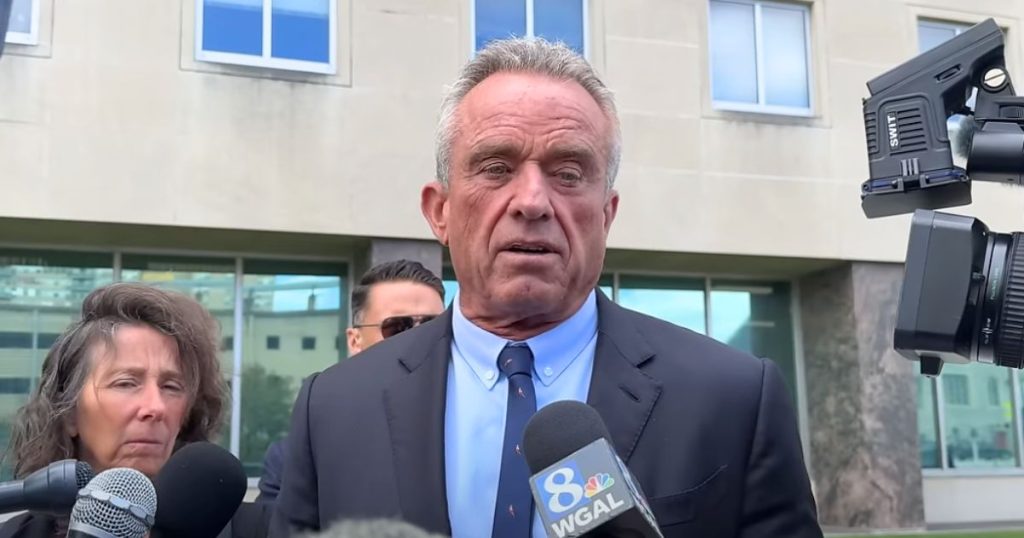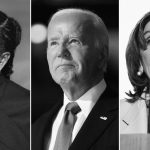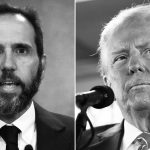In a stunning turn of events, the Food and Drug Administration (FDA) has inadvertently confirmed a significant portion of its funding comes from pharmaceutical companies.
A recent “fact check” by them that accidentally proved this, ignited a firestorm of criticism and debate across social media platforms.
InfoWars reported that the controversy erupted when the FDA attempted to refute claims made by Robert F. Kennedy Jr. (RFK) regarding the agency’s funding sources.
Kennedy had previously stated that “half” or “nearly half” of the FDA’s budget originated from pharmaceutical companies.
In a more recent assertion, he suggested that this figure had risen to approximately 75%.
In response to these claims, the FDA issued a statement aimed at correcting the record.
Their attempt at clarification backfired spectacularly, however.
An agency spokesperson declared, “This figure is not accurate as industry user fees only make up about 47% of the FDA’s total agency budget.”
The FDA’s statement, intended to discredit RFK’s claims, instead confirmed that nearly half of the agency’s funding does indeed come from the very industry it is tasked with regulating.
This revelation has led to widespread ridicule and criticism on social media platforms, with many questioning the agency’s independence and integrity.
The controversy gained further traction following RFK’s appearance on Fox News.
During the interview, as outlined by InfoWars, he discussed the harmful effects of seed oils, processed foods and pesticides used in the agriculture industry.
RFK used this platform to highlight what he perceives as a broader issue of regulatory capture.
“The USDA, the FDA have been captured by the industries they’re supposed to regulate,” RFK asserted.
“And they all have an interest in subsidies and then mass poisoning the American public.”
This statement has reignited debates about the relationship between government regulatory agencies and the industries they oversee.
Critics argue that such substantial funding from pharmaceutical companies could potentially compromise the FDA’s ability to regulate the industry impartially.
InfoWars noted that the FDA’s funding structure, known as the user fee program, was initially implemented to expedite the drug approval process.
Under this system, pharmaceutical companies pay fees to the FDA when submitting new drug applications.
While proponents argue that this system helps bring new medications to market more quickly, critics contend that it creates a conflict of interest.
This latest controversy has sparked calls for greater transparency and reform within the FDA.
Some lawmakers and public health advocates are pushing for a reevaluation of the agency’s funding model to ensure its independence from industry influence.
As the debate continues to unfold, the incident serves as a reminder of the complex relationships between regulatory agencies and the industries they oversee.
It also highlights the power of social media in amplifying public discourse and holding institutions accountable.
The FDA has yet to provide further comment on the matter, leaving many questions unanswered about the true extent of pharmaceutical industry influence on the agency’s operations and decision-making processes.
As this story develops, it is clear that the implications extend far beyond a simple funding dispute.
The incident has opened up broader discussions about regulatory independence, public health and the role of industry in shaping policy.
“I think Kamala Harris and the Democrats should immediately announce a panel to investigate the spike in chronic diseases and conditions among children these past years and invite different figures to participate,” Andrew Yang posted on X.
“This is a big issue for millions and could easily tip the election.”
The coming weeks are likely to see increased scrutiny of the FDA and potentially other regulatory agencies as the public demands answers and accountability.
Source: Resistthemainstream






